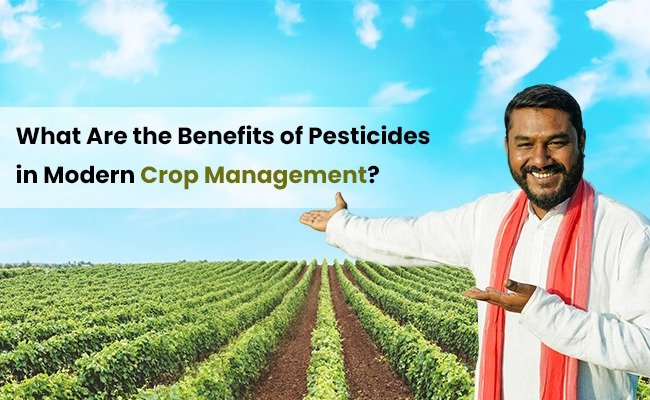
Modern agriculture is under constant pressure to produce more food while combating pests, diseases, and changing weather patterns. One effective way farmers manage these challenges is through the use of pesticides. From enhancing crop yield to supporting food security, pesticides play a vital role in today’s farming practices. This blog explores the key benefits of pesticides in modern crop management and why they remain an essential tool for sustainable agriculture.
How Do Pesticides Support Consistent and Healthy Crop Growth?
Pesticides contribute significantly to the consistency and health of crop growth in a number of ways:
- Protection Against Crop Losses
Pests and diseases can destroy a large portion of crops, sometimes wiping out entire fields. Pesticides help prevent this by:
- Controlling harmful insects (insecticides)
- Reducing fungal diseases (fungicides)
- Eliminating weeds that compete for nutrients (herbicides)
- Higher Crop Yields and Quality
When crops are protected from pests and diseases, they grow better and produce higher yields. Additionally, the quality of the produce improves, which increases its market value.
Benefits include:
- Uniform size and color of fruits/vegetables
- Reduced chances of contamination
- Longer shelf life due to reduced spoilage
- Efficient Use of Farmland
With increasing pressure on land, especially for small and medium-scale farmers, getting the most out of every acre is essential. Pesticides allow:
- Intensive farming on limited land
- Multi-cropping without significant pest build-up
- Better ROI (Return on Investment) per hectare
- Support for Integrated Pest Management (IPM)
Modern crop management emphasizes sustainability. Pesticides, when used judiciously, support Integrated Pest Management (IPM) strategies, which combine:
- Biological controls
- Cultural practices
- Mechanical methods
- Chemical controls (pesticides as the last resort)
This approach minimizes environmental impact and improves long-term productivity.
Pesticides and Sustainable Farming Practices
While the term “pesticides” sometimes raises concerns, proper regulation and application make them safe and effective. Modern formulations are:
- Target-specific
- Environmentally friendly
- Less toxic to humans and animals
Frequently Asked Questions (FAQs)
Q1. What are the long-term benefits of pesticides in crop management?
Long-term benefits include increased crop stability, and sustainable use of land resources. When used responsibly, pesticides contribute to soil health and long-term profitability.
Q2. What’s the difference between insecticide and pesticide?
Pesticide is a broad term that includes insecticides (insects), fungicides (fungus), herbicides (weeds), and others. Insecticide is a type of pesticide specifically targeting insects.
Q3. Can pesticides help with climate-resilient farming?
Yes. As weather patterns shift, new pests and diseases emerge. Pesticides help farmers adapt quickly to such changes and protect crops from unpredictable threats.
Partnering with Shree Pesticides for Smarter Farming
Understanding what the benefits of pesticides in modern crop management are is crucial for farmers, agro-dealers, and agricultural professionals. Pesticides, when applied responsibly, not only protect crops but also enhance productivity, profitability, and sustainability.
At Shree Pesticides, we offer high-quality crop protection products designed to meet modern farming needs. Whether you’re managing a small farm or a commercial agri-business, our expert team is here to guide you.
Start protecting your crops the smart way—connect with Shree Pesticides today!
